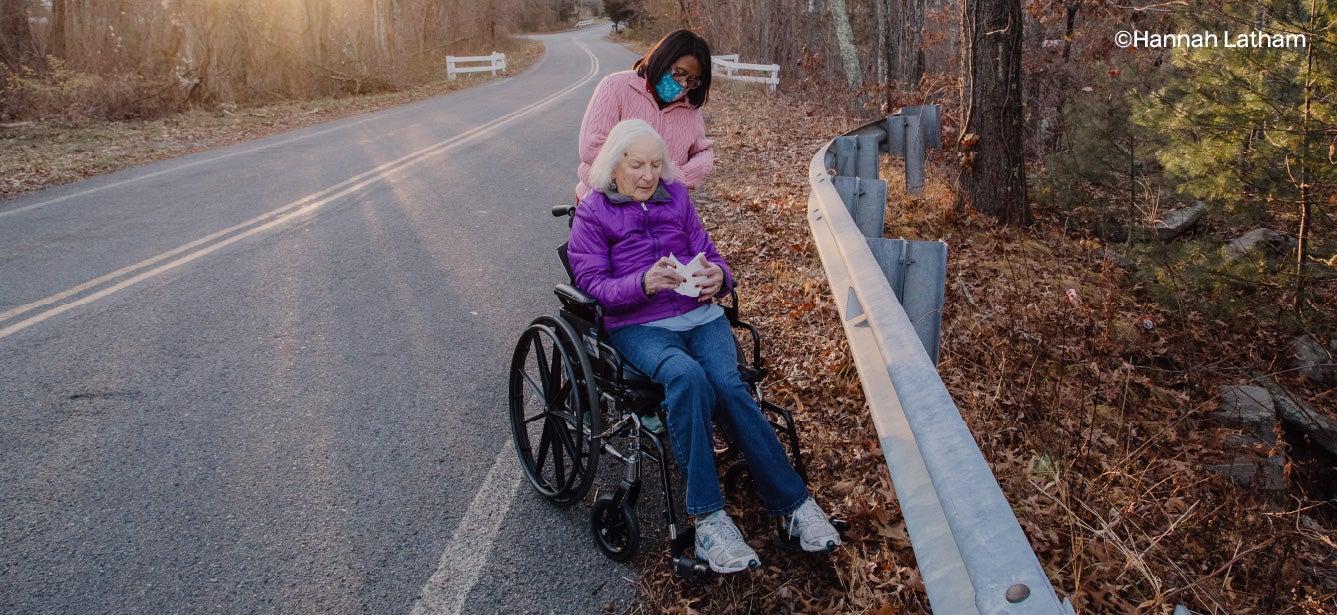
Related Topics
As a caregiver, you automatically put the needs of others first. That is the nature of caregiving. You want to be there when they need you, even if that means being available 24 hours a day.
But at some point on your journey down the road of caregiving, you come to the realization that you need to take better care of yourself. This is inevitable.
The importance of self-care for a caregiver
Many caregivers start to realize that they are tired all of the time because their sleep pattern have been disrupted. This lack of sleep can make you more prone to emotional highs and lows, as well as opening you to the risk of developing a chronic condition. It's not unheard of to put on some weight because you’re grazing on non-nutritious foods rather than sitting down to eat proper meals. Some old aches and pains are returning because you no longer have time for your daily walk. And you feel isolated from friends and family who are carrying on with their lives.
At this point, you begin to understand that you do not need to be a superhero and that you cannot rescue the world or someone else from everything. In order to take the best care of someone, you realize that you must practice self-care, or you will both suffer.
Ideally, reflecting on your needs for self-care should come early in your caregiving journey. After all, if you get to the point where you need your own caregiver, how effectively can you care for someone else when they are in need? However, if you have not implemented a self-care routine yet, it is most definitely not too late.
Why you should create your own Caregiver Bill of Rights
A first and very important step in self-care is to establish your own Caregiver Bill of Rights. You’ve gotten the checklist from your care recipient’s health care team on how to care for them. Now, it’s time to put down on paper how you want to care for yourself and what support you need. Your Caregiver Bill of Rights is a list of declarative statements that you proclaim for yourself in the context of your role as a caregiver. Many of these rights you tend to take for granted because, as a caregiver, you often forget about your own personal needs when you are down in the weeds of daily caregiving.
The rights in your list can be anything you choose, but they should be focused on improving your personal health and wellness, building healthier relationships with friends and family, and reducing your caregiver burden level—all actions that will allow you to become a better and more loving caregiver. There is no right or wrong way to do a Caregiver Bill of Rights. It should be an expression of your own needs and personality. To get you started, here are some sample statements that have been adapted from Jo Horne and originally published in her book, Caregiving: Helping an Aging Loved One.
Sample Caregiver Bill of Rights
I have the right:
- To take care of myself so that I can better take care of my relative.
- To get angry and express difficult feelings.
- To maintain facets of my own life that do not include my relative.
- To seek help from others even though my relative may object.
- To reject any attempt by my relative (either conscious or unconscious) to manipulate me through guilt, anger or depression.
- To take part in activities that improve my health and well-being.
How do I implementing my personal Bill of Rights?
Once you have established your personal Caregiver Bill of Rights, begin to think about how to put these rights into action. For example, think about what it really means to “take care of myself” and write a list of activities that that will enable you to make this a reality. It might be simple things like reading the daily paper or enjoying a soothing bath, or more practical things like maintaining your own doctor’s appointments and buying nutritious foods. Attending to your well-being might mean trying out at least one new recipe a week, signing up for an online exercise class, writing in a journal, keeping up your woodworking hobby, or calling your best friend every Sunday. If you feel that the person in your care is making you feel guilty, write down how you want to express yourself any time you are made to feel this way.
Detailing the activities you want to do to fulfill your Caregiver Bill of Rights will point you in the direction of self-care and away from the very real possibility of experiencing caregiver burnout. As experts at the Mayo Clinic warn: “Too much stress over time can harm your health. As a caregiver, you might feel depressed or anxious. You might not get enough sleep or physical activity. Or you might not eat a balanced diet. All of these increase your risk of health conditions, such as heart disease and diabetes.”1
Why you should lean in and take care of yourself first
Self-care for caregivers is paramount to maintaining physical, emotional, and mental well-being while providing support to the person in your care. Self-care begins with recognizing the importance of self-preservation and understanding that caregivers need nurturing, too.
Setting your own boundaries for what this nurturing looks like is vital: it is your journey, after all. Every day as a caregiver will bring different challenges and successes, along with new realities. Review your Caregiver Bill of Rights often, and change it as you think of new or more relevant items to add. Make a point of reading it to yourself every day as part of your routine. You want to remind yourself of how important your role as a caregiver is and to give gratitude, always, to yourself.
Sources
1. Mayo Clinic. Caregiver stress: Tips for taking care of yourself. Found on the Internet at https://www.mayoclinic.org/healthy-lifestyle/stress-management/in-depth/caregiver-stress/art-20044784



